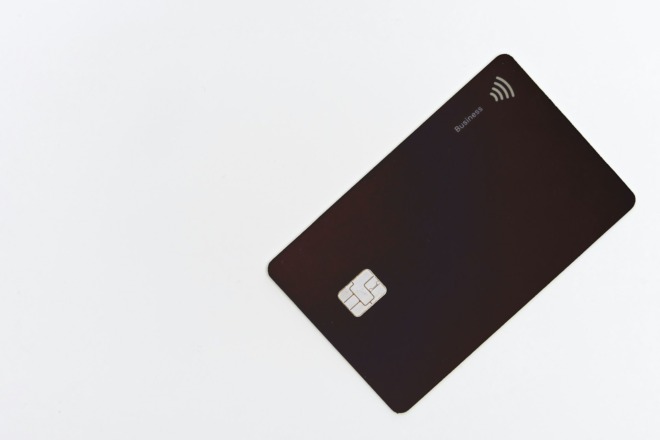Graphic and web designers come from all walks of life, but that means they also come from a variety of working environments. Some might work at an agency or publishing house, for example. Others might work as contractors, like a freelance web designer.
Striking up a professional relationship with a web designer can be completely different, based on how and where they work. Freelancers are in business for themselves, which means they decide how to manage their time, structure their projects and communicate directly with clients. Agencies, on the other hand, include several team members, and normally have a string of managers who interact with clients and direct the rest of the team.
If you’re reading this, you’re probably thinking about working with a freelance web designer or a contract-based professional. But this choice highlights just one of many elements you should consider when seeking out or hiring a web designer.
When specifically dealing with a freelance designer, here are some other things you should be mindful of.
1. You Don’t Have to Stick to Local Talent
One of the chief advantages of hiring contract or freelance web designers is that you don’t have to search exclusively in your local area. You can create online job offers that draw in professionals from all over the world. There are a great many platforms for this, including Craigslist, ProBlogger, Fiverr, Upwork and many others.
Effectively, the available talent pool is much broader, and you have access to a wide variety of skill levels, from beginner to experienced.
2. You Must Negotiate Ownership of the Work
When working with in-house designers — and sometimes even when working with big agencies or third parties — there’s no need to hash out ownership of the work involved. Generally, it belongs to your business or brand.
That’s not necessarily the case with freelancers, and some may even wish to retain the rights to their work. So, you’ll need to be mindful of this foundational change and ensure you negotiate an agreement up front. Draft a legally binding agreement or contract that expressly states who owns what and for how long. As compensation, you might consider paying the freelancer an advance.
3. You Must Clearly Define the Scope of the Project
With in-house designers, you may choose a deadline or estimated completion date, but the scope of a project tends to remain flexible. That doesn’t mean you shouldn’t stay on top of timelines to keep the scope of a project reined in, but you have more wiggle room because you’re working with existing employees. They’re already on the payroll making a defined salary or wage, and that won’t change — for the most part.
With a freelance web designer, things are different. The nature of contract work means they need to secure additional projects to keep their income flowing, and they must be mindful of this at all times.
It’s crucial that you not only outline the scope of an entire project, but that you also explain requirements, budget limitations and even potential changes. Failure to do so may lead to them walking away. The need to keep their income manageable may force them to sever a contract, especially since most freelance projects pay upfront or upon completion, not throughout.
4. You Can’t Treat Them Like Employees
This point has both good and bad elements to it. Ultimately, you cannot treat freelancers and contract workers the same way you do full-time employees, because that’s not what they are. If you wish to treat them the same, add them to your payroll or hire them as a permanent team member.
Freelancers value their work and their freedom — hence the name — and so they will often strike up a different form of relationship with clients. Unlike employees, they may refuse to do specific work or reject various ideas. Also, keep in mind many creative professionals not only prefer less oversight, but they also flourish without it.
The incredible amount of trust involved in a freelancer-client relationship can be for the best, but it can also take a turn for the worse if you hire someone flaky or irresponsible. To ensure this sort of thing doesn’t happen, honor the next point discussed below.
5. You Must Check in Frequently
No matter how much you trust the freelancer web designer, you must continue to gauge the progress of a project and provide suggestions or critiques. The trick is finding a good balance where the freelancer has enough creative freedom, and you can retain confidence and peace of mind. For a project that lasts several months, for example, checking in daily would be excessive. Weekly check-ups would be the better option. Use your judgment to decide a good routine.
Regardless, you should be receiving updates from your freelance web designers about both work and progress so you can ensure the final product is what you want.
6. Do Some Research
Before hiring anyone, do your research. When you open applications for a project or job, don’t rely on those apps alone for information about a potential worker. Instead, look up their LinkedIn profile or professional portfolio — if they don’t have either of these, that’s a telltale sign. Get to know their personality, and try to build an understanding of their work ethic.
Another best practice is to reach out to previous employers listed on their resume to gauge their accomplishments. Did they complete the project within the deadline? If not, was it because of significant changes or other factors? How happy was the client? Would they rehire the freelancer, and why?
7. Understand Your Tax Obligations
Tax laws classify freelancers and independent contractors much differently than conventional employees. Because they are a separate business entity, it is not your responsibility to withhold taxes or cover payroll taxes on their behalf. That does not mean you are exempt from tax obligations entirely. You may still need to classify and report certain information, so it’s vital to understand the requirements.
If you can’t wrap your head around the obligations on your own, consult a proper tax professional or representative.
8. Protect Your Assets
This point isn’t such a big deal with web design, because usually, you’re contracting the professional directly to complete a project for your business. However, it’s something to keep in mind.
With freelancers, there are no middlemen. They strike up relationships directly with a client, and in this case, that’s you. Therefore, nothing is stopping them from bypassing you and scooping up other clients or assets. For instance, if you’re an agency hiring an outside freelancer to work on a client’s site, they could just as easily reach out to the client, cutting you out.
You can prevent this by having them sign a non-compete agreement that prohibits any work with your current clients while they are under contract with you. It doesn’t stop them from doing work in general, just from working with related partners and clients.
9. You May Need Them Again
Web design and development is unique, especially in today’s landscape, in that it is never a one-and-done project. Modern websites are dynamic, regularly updated portals that must continue to receive new content, visual changes and sometimes even functional upgrades.
Yes, you can hire any web developer to handle these upgrades later, but sometimes it’s best to let the original author who’s already familiar with the site do the work. That means even after the completion of a contract or project, you may want to keep the relationship open with hired freelancers. Don’t burn any bridges. If you do, you’ll find yourself sorry when you need their assistance or guidance later.
10. You’re Not Their Only Client
Unless you have them sign an all-encompassing non-compete agreement, freelancers tend to juggle several clients at once. In many cases, it’s a must so they can bring in a steady income and pay their bills. The idea that all web designers make good money is a complete myth.
Keep this in mind when seeking out a potential freelancer web designer or developer and throughout your relationship. If they have another deadline to meet for a separate client, it may delay their ability to communicate or work with you.
11. You Need Strong Communication
This point is less about the fact that you need communication — that much is obvious — but more about the channels you use. Decide beforehand how you will spend most of your time communicating with your freelancer(s). Will you be using something like Facebook Messenger, Slack or Skype to open one-on-one communication? Or, will you use Skype’s video and voice capabilities to chat more candidly? Perhaps email alone is enough to get the job done.
Also, consider the tools available across these platforms. Some will allow you to screenshare, for example, to provide a visual demonstration of requirements or demands. Other valuable organization and collaboration tools to look into include Asana, Basecamp and Slack.
Working With Freelancers Can Be Incredibly Rewarding
One of the most significant disadvantages of working with a freelance web designer is that you never truly know what you’re going to get. They could produce some of the best design work you’ve ever seen, but they could just as easily flake out and miss deadlines.
It’s critical to invest time finding the right professional — which means investigating their background and talents. But you must also build a healthy relationship, which means regular and open communications, proper critique and some degree of oversight.
When you make the right choice, working with a freelance web designer can have a variety of benefits for your business, your website and your customers.



This is a decent list for small businesses or individuals to look at when picking a freelancer. For me, the most important thing to do is to spend time doing research. Speak to their previous clients. If they are worth their salt, then previous clients will give them rave reviews.
I completely agree with you, Robert. Spending the time and energy researching will pay off in the long run.
Thanks for reading!
Thank you for pointing everything out. Very interesting article